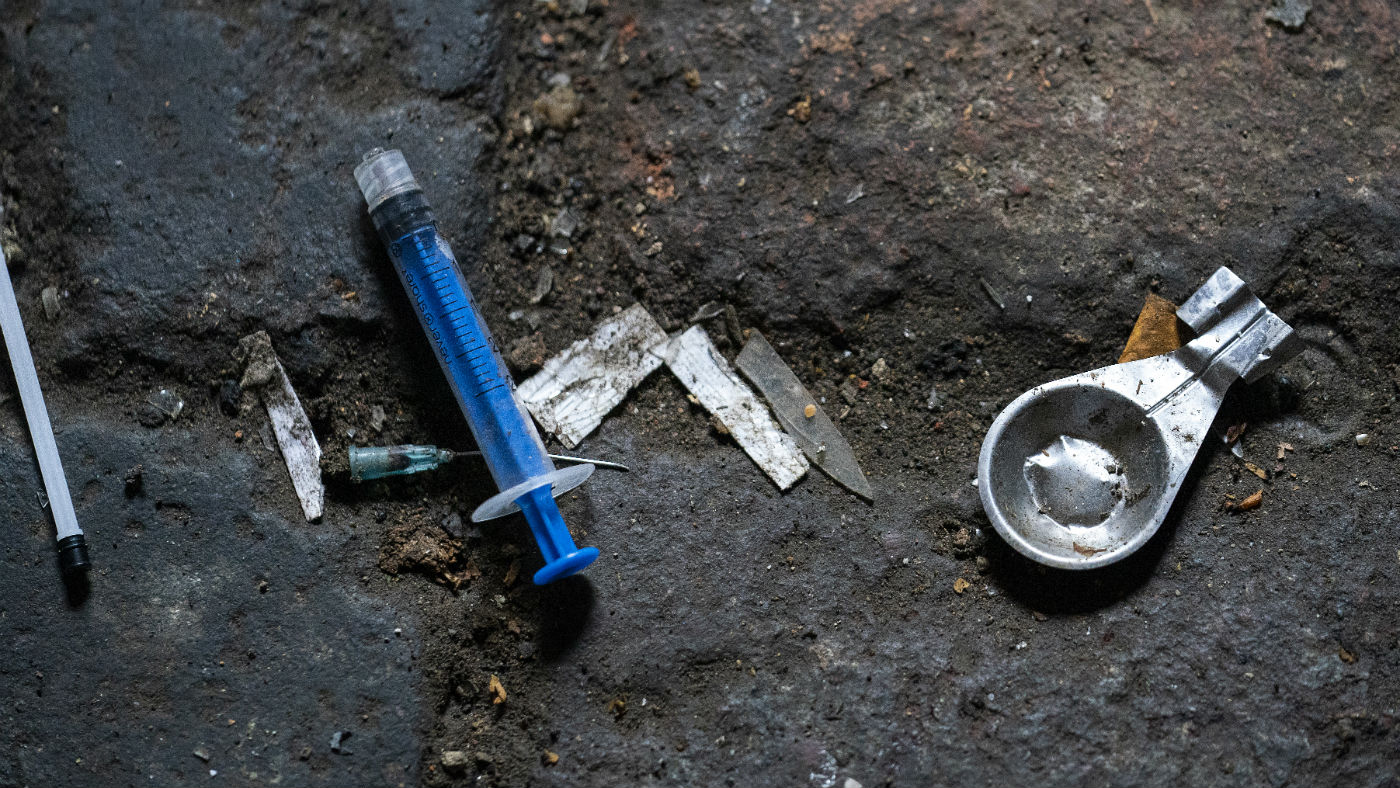What is driving drug deaths to record high?
Cuts to treatment programmes blamed but others say responsibility lies with drug users themselves

A free daily email with the biggest news stories of the day – and the best features from TheWeek.com
You are now subscribed
Your newsletter sign-up was successful
The government is facing calls to reverse damaging cuts to drug treatment services after official figures revealed the number of drug-related deaths in England and Wales has hit a record high.
According to the Office for National Statistics, there were 4,359 deaths related to drug poisoning recorded in 2018, an increase of 16% from the year before and the highest annual leap since records began. It comes less than a month after figures revealed Scotland’s drug-related death toll had also reached record levels.
While victims aged between 30 and 49 drove the surge in fatalities in England and Wales, the figures also highlight a north-south divide, with deaths in the north-east higher than any other English region or in Wales.
The Week
Escape your echo chamber. Get the facts behind the news, plus analysis from multiple perspectives.

Sign up for The Week's Free Newsletters
From our morning news briefing to a weekly Good News Newsletter, get the best of The Week delivered directly to your inbox.
From our morning news briefing to a weekly Good News Newsletter, get the best of The Week delivered directly to your inbox.
The Guardian reports that drug treatment experts, including the Royal College of Psychiatrists, “reacted angrily to the data, accusing the government of putting people’s lives at risk by cutting funding of vital treatments services”.
Studies have shown that councils have responded to central government cuts by slashing spending on drug treatment services by about 27% since 2015/16, and by more than 50% in some areas.
The Independent revealed last month that the number of live-in drug and alcohol rehabilitation services in England had fallen by a third in six years, “prompting concerns that as budgets fall, councils are sending fewer people to lifesaving residential rehabilitation centres”.
Dr Emily Finch, the vice-chair of the Royal College of Psychiatrists’ addictions faculty, said: “National decision-makers need to wake up to the fact that swingeing cuts to services, disconnecting NHS mental health services from addiction services and shifting the focus away from harm reduction to abstinence-based recovery is destroying lives and fuelling the increase in drug-related deaths.”
A free daily email with the biggest news stories of the day – and the best features from TheWeek.com
As well as presiding over cuts to local authority budgets which they said undermined the ability to deliver effective drug treatment services, The Independent reports that campaigners have argued the rising rates were “avoidable” and accused ministers of taking an approach that was too focused on law enforcement.
Boris Johnson has promised a new get-tough approach to crime, a move which will leader to harsher sentences for drug offences but which some experts say will do little to address the root cause of drug use.
“The blame game has begun with fingers pointed at government cuts and at a failure to implement evidence-based measures that would reduce deaths,” says BBC home editor Mark Easton, “but others say responsibility lies with many of the drug users themselves.”
“The Home Office notes that half of illicit drugs deaths are among users who have either never taken part in treatment or have not done so for many years” he says, adding that “the purity of heroin and crack is increasing, its price is falling and suppliers are becoming more sophisticated at getting their product to customers in every part of the country”.